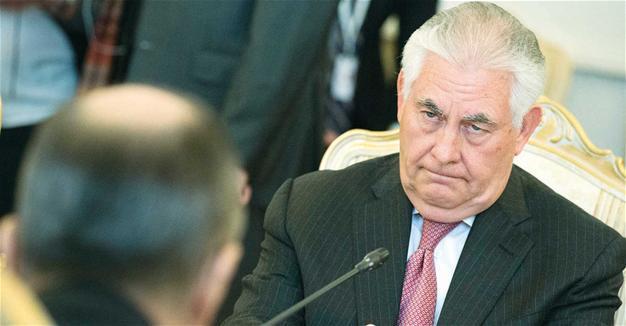Russian vote meddling led to ‘serious mistrust’
MANILA

U.S. Secretary of State Rex Tillerson said on Aug. 7 that he had told his Russian counterpart that Moscow’s meddling in the U.S. presidential election had created “serious mistrust” between the two countries.
After meeting Foreign Minister Sergei Lavrov in Manila, Tillerson said he had also warned him Washington was deciding on a response to the Kremlin’s decision to order a cut in the size of the U.S. mission in Moscow.
“Russian meddling in the elections was certainly a serious incident. We talked about that in the discussion that we had with Mr. Lavrov yesterday,” Tillerson told reporters.
“And trying to help him understand just how serious this incident had been and how seriously it had damaged the relationship between the US and the American people and the Russian people, that this had created serious mistrust and that we simply have to find some way to deal with that.”
Russia has furiously denied reports, endorsed by U.S. intelligence agencies, that it attempted to swing last year’s US presidential in favor of the eventual victor, President Donald Trump.
Trump has played down the allegations, but the ongoing controversy cast a pall over already tense ties, which most recently saw President Vladimir Putin order the U.S. diplomatic mission in Moscow cut 755 personnel.
“I told the foreign minister that we have not made a decision about how we would respond to the Russian request to remove U.S. diplomatic personnel,” Tillerson said.
“I asked several clarifying questions, just to describe the thinking behind that diplomatic note that we received, but I told them we would respond by September 1,” he said, referring to Moscow’s deadline to shrink the mission.
U.S. special prosecutor Robert Mueller, meanwhile, would need clearance from above to expand his Russia probe into areas outside the original scope of the investigation, a top Justice Department official said Sunday.
“We don’t engage in fishing expeditions,” said Rod Rosenstein, the deputy attorney general who appointed Mueller, a former FBI director, to investigate links between U.S. President Trump’s campaign and a covert Russian effort to tip the 2016 U.S. elections in his favor.
Trump, a billionaire real estate developer, has said he considered scrutiny of his family’s finances a “red line” that the federal probe should not cross.
If Mueller “finds evidence of a crime that’s within the scope of what the director and I have agreed is the appropriate scope of the investigation, then he can,” Rosenstein said in an interview with Fox News Sunday.
“If it’s something that’s outside that scope [he] needs to come to the acting attorney general,” he said, referring to himself.
 U.S. Secretary of State Rex Tillerson said on Aug. 7 that he had told his Russian counterpart that Moscow’s meddling in the U.S. presidential election had created “serious mistrust” between the two countries.
U.S. Secretary of State Rex Tillerson said on Aug. 7 that he had told his Russian counterpart that Moscow’s meddling in the U.S. presidential election had created “serious mistrust” between the two countries.